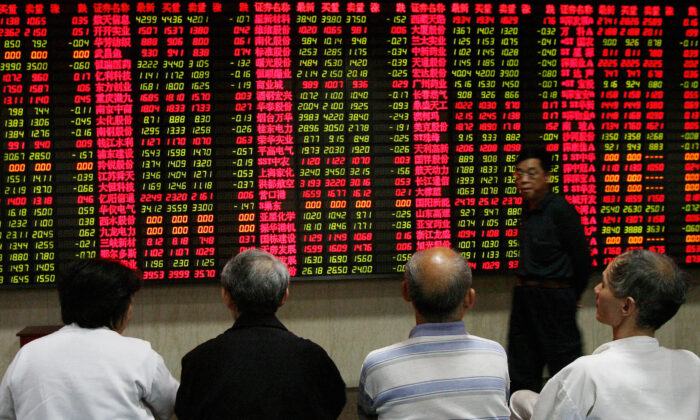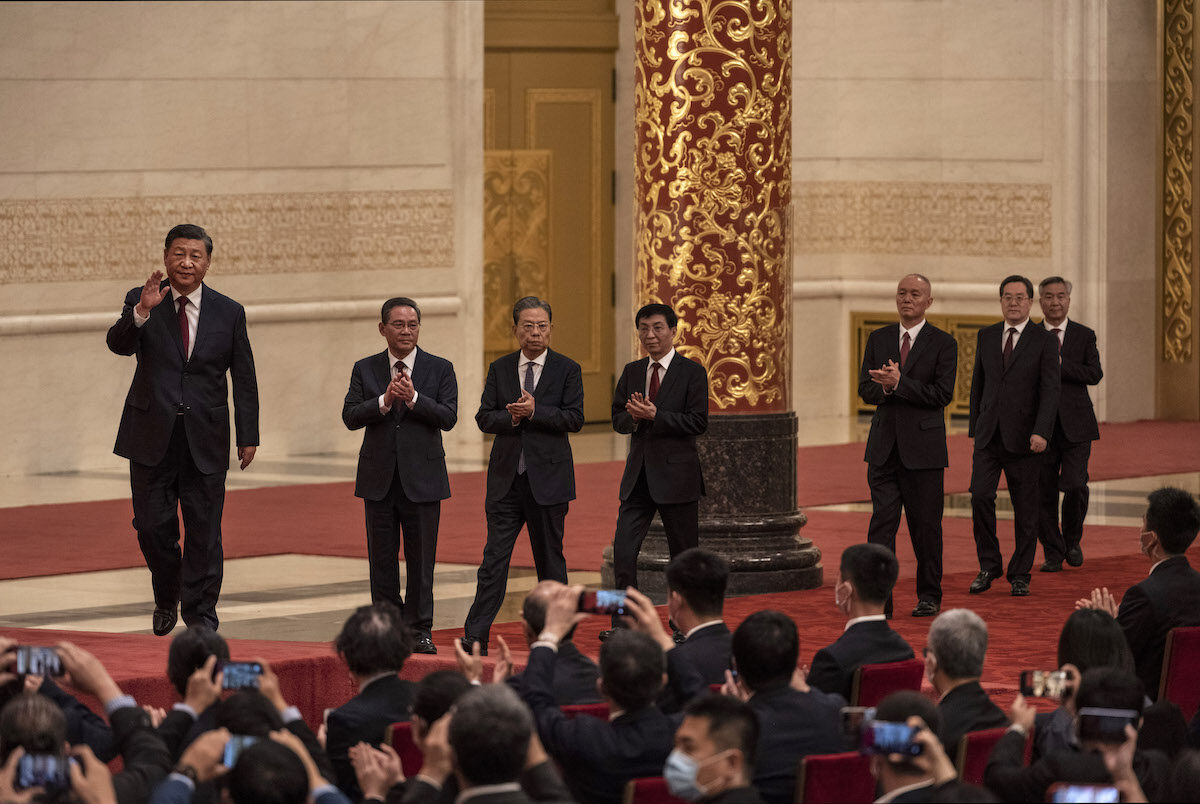
News Analysis
On the eve of the Chinese Communist Party’s (CCP) rubber stamp conferences that kicked off on March 3, Chinese A-shares instantly surged, fell in successive days, then hit a one-month low on March 10, the day Xi Jinping was announced as leader of communist China for a third term.
On March 10, Shanghai Stock Exchange Composite Index (SSE Composite Index) and Shenzhen Stock Exchange Component Index (SZSE Component Index) plunged 1.40 percent and 1.19 percent to close at 3,230.08 points and 11,442.54 points, respectively, while the Growth Enterprise Index (GEM Index) closed at 2,370.36 points, down by 0.10 percent.
Hong Kong stocks also plummeted after March 6, and like A-shares, touched the bottom on March 10. The Hang Seng Index of Hong Kong stocks tumbled 605.82 points, or 3.04 percent, to close at 19,319.92 points, among which Hang Seng China Enterprises Index (H-shares Index) and Hang Seng Technology Index fell 3.06 percent and 3.78 percent, respectively.
It appears that the Chinese stock market is not entirely optimistic about Xi’s upcoming third term in power, in contrast to the positive response to the CCP leader’s first two elections.
 (L–R) Members of the new Standing Committee of the Political Bureau of the Communist Party of China, CCP head Xi Jinping, Li Qiang, Zhao Leji, Wang Huning, Can Qi, Ding Xuexiang, and Li Xi as they arrive for a group photo at a meeting with Chinese and Foreign Journalists at The Great Hall of People in Beijing, on Oct. 23, 2022. (Kevin Frayer/Getty Images)
(L–R) Members of the new Standing Committee of the Political Bureau of the Communist Party of China, CCP head Xi Jinping, Li Qiang, Zhao Leji, Wang Huning, Can Qi, Ding Xuexiang, and Li Xi as they arrive for a group photo at a meeting with Chinese and Foreign Journalists at The Great Hall of People in Beijing, on Oct. 23, 2022. (Kevin Frayer/Getty Images)
On March 5, 2013, the opening day of the two sessions—National People’s Congress and Political Consultative Conference—the SSE Composite Index rose 2.33 percent, then rose again 0.28 percent on March 14, 2013, when Xi first took office as head of the CCP and extended upward the next day by another 0.36 percent.
Likewise, on March 5, 2018, the SSE Composite Index rose a modest 0.07 percent and 1.00 percent the next day. Xi was re-elected on March 17, but it was a Saturday, so the stock market rose 0.29 percent on Monday, March 19, 2018, and then 0.35 percent the following day.
“This is a rare occurrence in CCP history,” Fang Qi, a UK-based Chinese financial professional, spoke to The Epoch Times on March 13. “As a practice, the CCP officials should have informed listed companies and securities firms and let the ‘national team’ act as per the political events.”
For example, the stock market would keep rising during the so-called election of the CCP leader and can only fall afterward, Fang said.
“However, the A shares and Hong Kong stocks slumped during this year’s two sessions,” he said.
It’s a sign that investors have lost hope for the economic prospects, Fang continued.
“The more than 8,000 proposals of the 3,000 delegates to the two sessions have not made any decision on issues about the national economy and people’s livelihood, such as the China–U.S. relationship, real estate, foreign trade, unemployment, increasing income, food security, retirement, and health care,” he said.
Prolonged severe Zero-COVID policies caused the country to decline economically.
On Oct. 24, 2022, China’s A-share stock market encountered a “Black Monday,” with Chinese and Hong Kong stocks diving shortly after the 20th National Congress concluded on Saturday, Oct. 22, 2022.
Investors who shorted stocks—meaning they bet the stocks would decline in price and they could buy them at a lower price in the future—were thus rewarded with lucrative returns in this round of stock devaluation. They earned as much as $4.4 billion in profits from their shorting trades on Oct. 24–25, 2022, alone, according to Bloomberg.
A short sale is an investment term that refers to selling assets that one does not currently own in the hope that the asset will depreciate to benefit from the transaction.
According to Fang, Xi’s being “unanimously elected” as leader of China and chairman of the military commission reflects a collective “lying flat”—a passive attitude of letting things happen and not doing anything for or against—of the entire CCP bureaucracy, from the top to all levels of officials in the administrative system.
Ellen Wong contributed to this article.